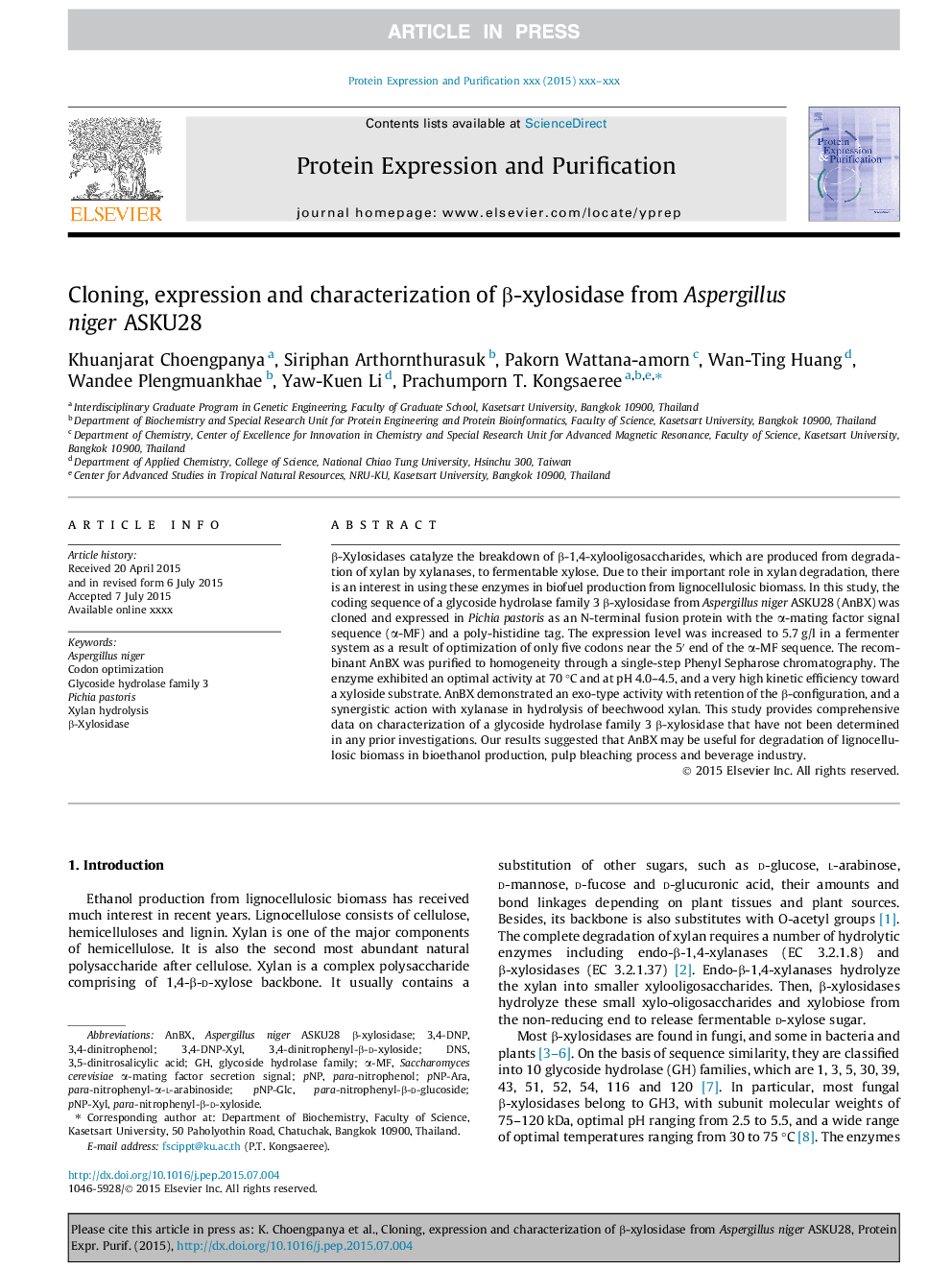| Article ID | Journal | Published Year | Pages | File Type |
|---|---|---|---|---|
| 8359996 | Protein Expression and Purification | 2015 | 9 Pages |
Abstract
β-Xylosidases catalyze the breakdown of β-1,4-xylooligosaccharides, which are produced from degradation of xylan by xylanases, to fermentable xylose. Due to their important role in xylan degradation, there is an interest in using these enzymes in biofuel production from lignocellulosic biomass. In this study, the coding sequence of a glycoside hydrolase family 3 β-xylosidase from Aspergillus niger ASKU28 (AnBX) was cloned and expressed in Pichia pastoris as an N-terminal fusion protein with the α-mating factor signal sequence (α-MF) and a poly-histidine tag. The expression level was increased to 5.7 g/l in a fermenter system as a result of optimization of only five codons near the 5Ⲡend of the α-MF sequence. The recombinant AnBX was purified to homogeneity through a single-step Phenyl Sepharose chromatography. The enzyme exhibited an optimal activity at 70 °C and at pH 4.0-4.5, and a very high kinetic efficiency toward a xyloside substrate. AnBX demonstrated an exo-type activity with retention of the β-configuration, and a synergistic action with xylanase in hydrolysis of beechwood xylan. This study provides comprehensive data on characterization of a glycoside hydrolase family 3 β-xylosidase that have not been determined in any prior investigations. Our results suggested that AnBX may be useful for degradation of lignocellulosic biomass in bioethanol production, pulp bleaching process and beverage industry.
Keywords
Related Topics
Life Sciences
Biochemistry, Genetics and Molecular Biology
Biochemistry
Authors
Khuanjarat Choengpanya, Siriphan Arthornthurasuk, Pakorn Wattana-amorn, Wan-Ting Huang, Wandee Plengmuankhae, Yaw-Kuen Li, Prachumporn T. Kongsaeree,
